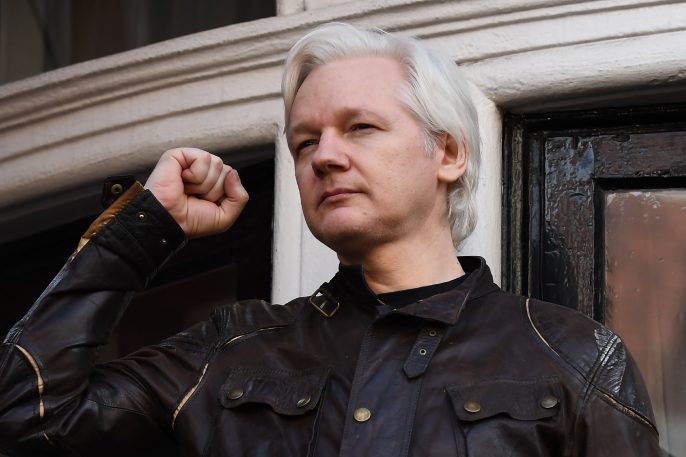
Julian Assange. Justin Tallis / AFP/ Getty Images
Julian Assange to be freed after pleading guilty, ending 14-year legal struggle
The WikiLeaks co-founder is set to plead guilty to one espionage charge and receive credit for time served.
WikiLeaks co-founder Julian Assange has departed the UK after extended negotiations with the US Department of Justice resulted in a plea deal. Assange has left the Belmarsh maximum security prison on the morning of June 24 UTC, according to details released by WikiLeaks.
JULIAN ASSANGE IS FREE
Julian Assange is free. He left Belmarsh maximum security prison on the morning of 24 June, after having spent 1901 days there. He was granted bail by the High Court in London and was released at Stansted airport during the afternoon, where he boarded a…
— WikiLeaks (@wikileaks) June 24, 2024
The agreement is not yet formally finalized, and comes after Assange spent five years in a UK jail and nearly seven years in Ecuador’s London embassy. His first destination is Saipan, capital of the US protectorate Northern Mariana Islands, where he’s expected to receive a five-year sentence with credit for time served in the UK.
Assange’s arrest in the UK stemmed from breaching bail conditions while seeking asylum to avoid extradition on charges related to publishing classified documents provided by Chelsea Manning. Manning’s own sentence was commuted in 2013 by then-President Obama.
The historical development of WikiLeaks and crypto, particularly Bitcoin, has been closely intertwined over the years. A decade ago in a Reddit AMA, Assange said that he wrote about Bitcoin in his book. While WikiLeaks initially refrained from accepting Bitcoin, the organization later adopted it for donations as it faced a financial blockade from state authorities after the Cablegate leaks in 2011.
Assange claimed that the initial reluctance stemmed from a “personal request” from Satoshi Nakamoto, according to a report from CoinDesk. This move not only kept WikiLeaks afloat but also significantly boosted Bitcoin’s profile and utility.
“There’s lots on bitcoin in my book – on my thoughts on it, and on WikiLeaks’ history with it. [Google’s] Eric Schmidt and I conversed for a while about it, and I also included a lot of notes to expand on my views. It’s a fascinating and complex subject, so I can’t possibly go through all of it,” Assange said at the time.
During his legal battles, Assange supporters utilized a Decentralized Autonomous Organization (DAO) to fundraise for his defense, raising over 16,500 ether (ETH) – currently valued at over $55.2 million, making AssangeDAO the most well-funded DAO in recent history.
In January 10, 2017, reports of Assange’s death surfaced. In response, he read a hash live on Twitch from the most recent block produced on that day.
“Thinking about real-time proof-of-life, intellectually the most interesting one is to take the most recent block in the bitcoin blockchain,” Assange said.
Even during Assange’s incarceration, crypto donations continued to flow into WikiLeaks’ wallets. Since his 2019 arrest, over 35 BTC (worth roughly $1.13 million at the time) was deposited into the WikiLeaks donation address.
Assange’s brother, Gabriel Shipton, recently addressed claims by blockchain security firms SlowMist and RescuETH that AssangeDAO may be “soft-rugging.” Shipton stated these claims were “just false,” explaining that the funds raised by AssangeDAO were used to purchase an NFT, with proceeds donated to the German charity Wau Holland Foundation for Assange’s legal defense. Despite Shipton’s reassurances, some AssangeDAO members remain dissatisfied, citing concerns over the lack of a proper token-based voting system and the allocation of funds.

 Earn with Nexo
Earn with Nexo